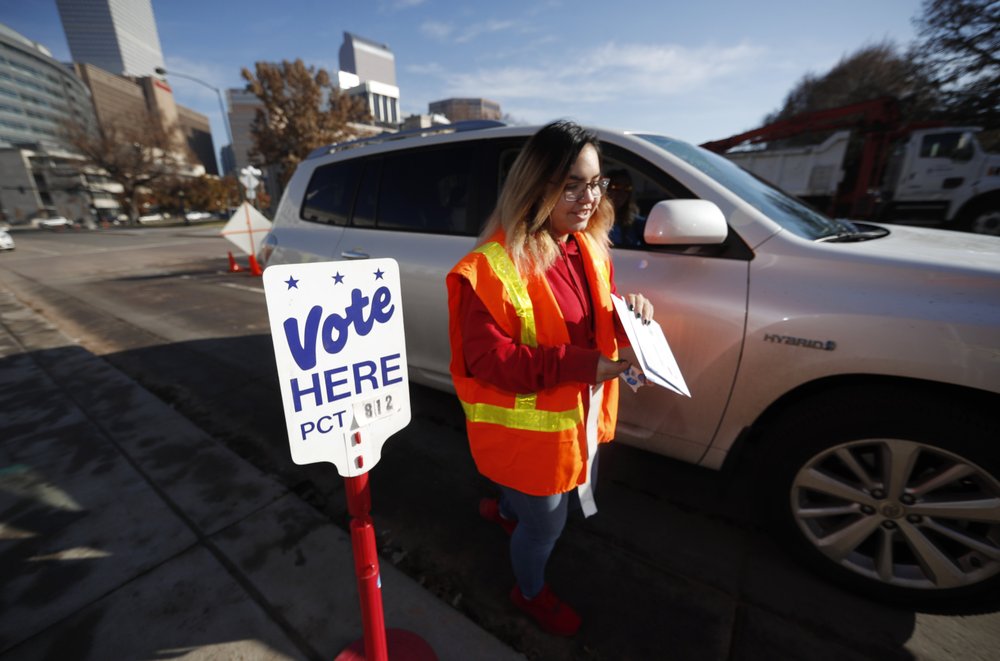Voters in US states decide on sanctuary city, sports betting

Election judge Amanda Vigil collects a ballot from a motorist at the drive-through site of the Denver Elections Division outside the City/County Building early Tuesday, Nov. 5, 2019, in Denver. (AP Photo/David Zalubowski)
Voters in some states are deciding whether to roll back conservative policies adopted in earlier eras. Ballot measures in Tucson, Arizona and the states of Colorado and Washington give voters another say on hot-button social issues: immigration, gambling, taxes and affirmative action.
Among the highlights:
ARIZONA
Voters in the liberal enclave of Tucson appear to be overwhelmingly rejecting a proposal to designate it as Arizona’s only sanctuary city. Early ballots Tuesday showed voters were rejecting the initiative by more than a 2 to 1 margin. A defeat would be a relief for the Democrats who control city government in one of Arizona’s most liberal cities. They worry the initiative would jeopardize millions of dollars in state and federal funding and put public safety at risk. The initiative is a direct challenge to the state immigration law that drew global attention, protests, boycotts and lawsuits when it was adopted nine years ago.
COLORADO
A measure that would legalize sports betting and tax it to help conserve water is being considered in Colorado. The proposal has bipartisan support and only token organized opposition. But the state Constitution requires voters to approve new taxes. It would allow Colorado’s 33 casinos to take both in-person and online bets on professional, collegiate, motor and Olympic sports next year. Legal sports betting has grown since New Jersey won a U.S. Supreme Court case in 2018 allowing it in all 50 states.
Colorado voters rejected a ballot measure asking if the state could keep tax revenue that otherwise would be refunded under limits set by a 1992 constitutional amendment called the Taxpayer’s Bill of Rights.
WASHINGTON
Voters will decide whether minority status should be considered in state employment, contracting and admission to public colleges. The measure asks people whether they want to change current laws that prohibit state government from giving preferential treatment to individuals or groups based on race, sex, color, ethnicity, or national origin in public employment, public education, or public contracting.
Voters in Washington also are weighing in on a transportation measure. They are being asked whether annual vehicle registration fees should be capped at $30. If the measure is approved, transit and road budgets across the state would be slashed.